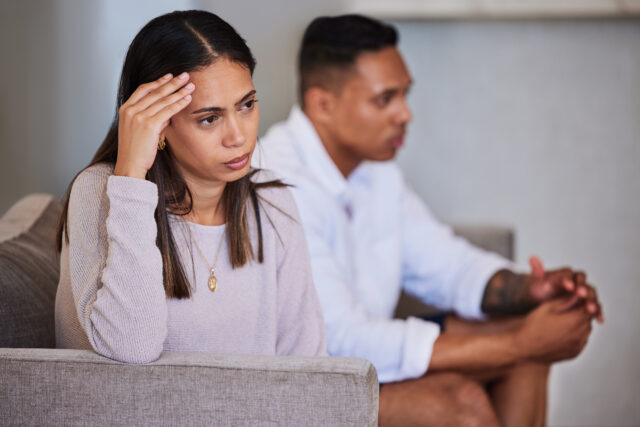Getting divorced can leave you with more questions than answers, especially when it comes to dating again.

You might feel hopeful, hesitant, excited, or completely unsure if you’re even ready. There’s no single timeline people follow, nor is there a right answer or a right way to get back out there. Before you jump into something new, here are 15 honest questions to ask yourself that can help you move forward without dragging the past with you.
1. Have I healed, or just distracted myself?

It’s easy to stay busy after a divorce—diving into work, hobbies, or new routines to keep from feeling the weight of it all. However, there’s a difference between healing and avoidance. Have you given yourself space to grieve and reflect, or are you just trying to skip to the next chapter?
You don’t have to be completely “healed” to date again, but knowing you’ve sat with the hard stuff (rather than stuffed it down) is important. Emotional honesty with yourself is the best starting point for something healthy.
2. Do I understand what went wrong last time?

This isn’t about assigning blame—it’s about clarity. What patterns kept showing up? What did you tolerate that you shouldn’t have? Where did things start to change? If you’re able to name what didn’t work, you’re less likely to repeat it. That kind of self-awareness makes space for new dynamics instead of old ones in disguise.
3. Am I looking for connection or for validation?

Wanting to feel desired or noticed again is totally normal after divorce, but it’s not always the same as being ready to connect. If you’re chasing compliments or trying to prove your worth, you might walk into something for the wrong reasons. Ask yourself if you’re looking for closeness, or if you’re just trying to silence insecurity. The difference matters, and it shapes what you attract.
4. What did I learn about myself in the last relationship?

Even in painful marriages, there’s insight to be gained. Maybe you learned how you show up during conflict. Maybe you saw how far you’ll bend to keep the peace. Maybe you discovered what you actually need from a partner after years of not getting it. Carrying those lessons forward—not as baggage, but as wisdom—is one of the strongest things you can do. That growth is what turns the past into something useful.
5. Am I still carrying resentment or anger?

You can be over someone and still bitter about how things ended. But if that resentment is still sitting in your chest, it’s likely to leak into anything new. That doesn’t mean you have to forgive everything. It just means you’ve found a way to move forward without carrying it all with you. New relationships deserve a fresh start. If you’re still angry, ask yourself what it would take to let some of that weight go—for your sake, not theirs.
6. What do I want this time that I didn’t have before?

Getting clear on what you want is crucial. Maybe you want more emotional safety, more honesty, more laughter, or more shared goals. Knowing what matters to you now helps you stop settling for less than that. This is your chance to build something on new terms. Take the time to ask what those terms actually are before letting someone else define them for you again.
7. Am I afraid of being alone?

Wanting love is natural, but if your main reason for dating is to avoid loneliness, you might end up clinging to the first person who shows interest, regardless of whether they’re actually a good fit. Being alone after divorce can be confronting, but learning to enjoy your own company gives you the strongest foundation for anything new. You don’t need to be “fixed” by love—you just need to be grounded in yourself.
8. What am I bringing to the table now?

It’s easy to focus on what you want in a new partner, but what are you offering? What have you worked on? What makes you a good listener, communicator, or teammate this time around? This isn’t about being perfect. It’s about being intentional. When you know your strengths and growth areas, you bring self-awareness into the relationship instead of just expectations.
9. Do I trust myself to choose differently now?
 Source: Unsplash
Source: Unsplash Divorce can shake your confidence, especially if things ended in betrayal or regret. But part of moving on is learning to trust your instincts again because your ability to choose well isn’t gone, it just needs rebuilding. Ask yourself: do I trust my own judgement, or am I still second-guessing everything? If it’s the latter, it might help to slow down and reconnect with your inner compass first.
10. Have I fully let go of the “what ifs”?
 Source: Unsplash
Source: Unsplash The past has a way of lingering through fantasy. “What if I’d tried harder?” “What if they’d changed?” “What if we’d done therapy sooner?” That loop can keep you emotionally tangled up, even when you’re trying to move on. Letting go doesn’t mean forgetting. It means accepting that the version of love you had ran its course, and what comes next needs your full presence, not your divided heart.
11. Do I feel proud of who I am right now?
 Source: Unsplash
Source: Unsplash This isn’t about having everything figured out. It’s about feeling like you’re standing on solid ground, even if parts of you are still healing. If you like who you are, dating becomes about sharing, not seeking approval. If you don’t feel proud yet, that’s okay too. Just keep building that relationship with yourself first, so the next connection you enter gets the best of you, not the most uncertain parts.
12. What patterns do I want to break?

Maybe you tend to people-please. Maybe you shut down during conflict. Maybe you jump in too fast or stay too long. Whatever the pattern is, name it—because if you don’t, it’s likely to sneak into the next relationship unnoticed. Being honest about your habits doesn’t mean beating yourself up. It means giving yourself the power to make different choices this time around.
13. Am I looking for a partner or a distraction?

Rebounding can feel good—until it doesn’t. If you’re still numb, confused, or secretly hoping your ex notices, diving into something new might do more harm than good. You deserve more than a distraction. Ask yourself if you’re looking to build something real, or if you’re just avoiding sitting with the quiet. The answer might change your whole approach.
14. Can I talk about my divorce without spiralling?

It’s normal for it to still sting. That being said, if the thought of talking about your past relationship with someone new fills you with dread, tears, or rage—you might not be ready to build something new just yet. You don’t need to be over everything, but being able to share your story without crumbling gives you a stronger starting point. If you’re still too raw, give yourself more time to settle emotionally before inviting someone else in.
15. Am I clear on what “healthy” looks like now?

If all you know is what didn’t work, you might end up settling for slightly better, but still not good. Take some time to define what healthy love means to you now. What does respect look like? What does emotional safety feel like? Having a clear idea of what you want to build gives you a filter to protect yourself with. Without it, it’s easy to fall for charm, promises, or surface-level connection. With it, you know what to walk toward, and what to walk away from.




